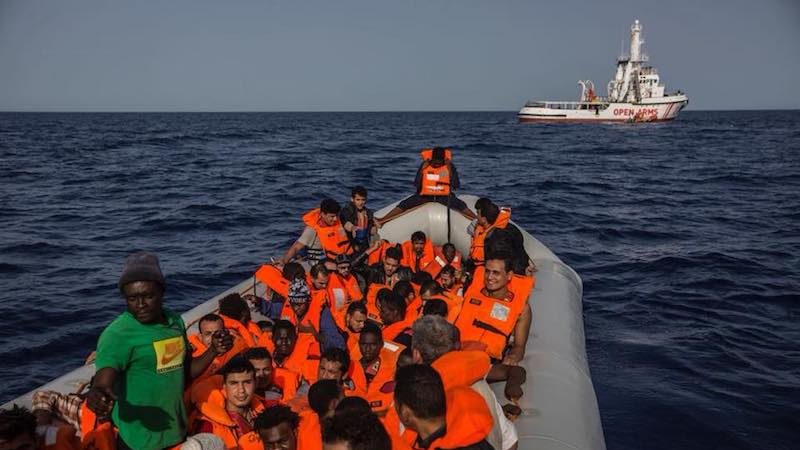Individuals and NGOs offering humanitarian assistance to migrants through rescue operations should not be punished for their actions, the European Parliament said.
On Thursday, MEPs approved a non-legislative resolution highlighting concerns that EU laws on help offered to migrants had “unintended consequences” for citizens and NGOs offering humanitarian assistance.
Under the 2002 ‘Facilitation’ directive, EU member states are required to introduce laws listing criminal penalties for anyone who “facilitates” the irregular entry, transit or residence of migrants.
However, the resolution stresses that the EU legislation also gives member states the power to exempt humanitarian action from the list of crimes and expressed regret that few member states incorporated it into their national laws.
Malta hit the international headlines after the government decided to detain two rescue vessel ships with migrants and grounded a plane used by a German NGO for rescue operations in the Mediterranean sea.
The captain of one of the ships is also facing charges in court related to registration irregularities. In May, a group of Spanish volunteers was acquitted in Greece of smuggling charges filed when they were helping migrants arriving from Turkey.
The MEPs highlighted that humanitarian assistance offered by individuals and NGOs “supports and complements life-saving actions undertaken by the competent authorities of EU member states” and stressed that any action must remain within the remit established by the Facilitation directive, with operations taking place under the control of national authorities.
The European Parliament called on EU countries to include the “humanitarian assistance” exemption in their legislation and ensure that individuals and civil society organisations who assist migrants for humanitarian reasons are not prosecuted for doing so.
The resolution also urged the EU Commission to issue guidelines specifying which forms of “facilitation” should not be criminalised by member states and ensure that the law is applied with greater clarity and uniformity.
Claude Moraes (S&D, UK), who drafted the resolution on behalf of the Civil Liberties Committee, said there was the need for clear guidelines regarding humanitarian assistance. “During my EP mission to Libya, NGOs have again and again explained that this is essential so that they can carry on with their work”.













